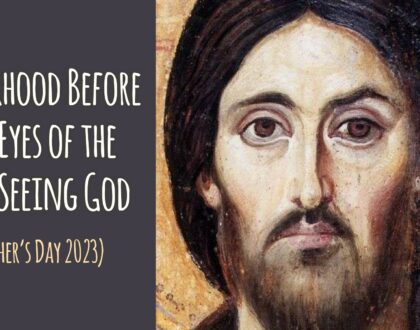The Shoe Factory

by Pastor Gene
There’s an illustration I heard many years ago. I’m sorry, but I don’t know who wrote it. It tells the story of shoe factory and it goes something like this …
Imagine that there’s a large shoe factory in your home town. The management has invested great sums of money and many man-hours into the plant to produce the finest shoes possible. Money has been spent on salaries for the employees, machinery for shoe making, and materials from which the shoes are to be made.
The plant is now up and running and hundreds of workers are running around everywhere, scurrying to and fro. Machines are running full blast, and activity is at a maximum. One day the president visits the factory.
“How many shoes have we produced so far?” he asks.
“None,” the manager answers.
“None?” the president says, bewildered? “How long have we been in operation?”
“Two years.”
“Two years? And still no shoes?”
“That’s right,” the manager says, “No shoes, but we are really busy. In fact, we have been so busy that some of us are nearly burnt out! We’ve been very active; really burning the candle at both ends!”
“But you’ve made NO shoes?” the president asked again.
“Not a one!” replied the manager, smiling.
What do you think would happen in a situation like this? The management would be very concerned, try to find out what the problem was, probably even fire somebody. This would be a ridiculous situation that simply could not continue!
What If?
But what if we were to remove the shoe sign from the building and replace it with a church sign – what would we find if we looked inside?
We’d surely see lots of good activity going on.
We’d see men and women working hard.
Lots of good work being accomplished.
Lots of good, solid theoretical teaching going on.
People caring about one another, taking care of one another.
But, just a question: are they making anything?
Now, you might say, ‘Gene, the church is not a shoe factory! Jesus never told us to make shoes!” No, He didn’t. But He did tell us to make something!
“Go, Therefore, and Make Disciples …”
After His resurrection, the eleven disciples went to Galilee, to the mountain to which Jesus had directed them. And when they saw Him they worshiped Him, but some doubted. And Jesus came and said to them, “All authority in heaven and on earth has been given to me. Go therefore and make disciples of all nations, baptizing them in the name of the Father and of the Son and of the Holy Spirit, teaching them to observe all that I have commanded you. And behold, I am with you always, to the end of the age” (Matthew 28:16-20).
“Make disciples” is the main verb of this passage, the primary action (“go,” “baptizing,” and “teaching” are all participles). So, Jesus is saying, ‘Make disciples! And do so by going, baptizing, and teaching.’
Making disciples has always been the core of the Church’s mission and is a chief priority for every believer who takes his or her calling seriously. To become a disciple is to become a close follower of Jesus, a disciplined student of His Word.
And to “follow” Jesus means seeking the lost (evangelism) and encouraging them to follow Jesus too (discipleship). “Follow Me,” Jesus said, “and I will make you fishers of men!” (Matthew 4:19, NASB)
Before They Were Called Christians, They Were Called …
We might be tempted to think that the followers of Jesus were initially called ‘Christians,’ but we’d be wrong. Acts 11:26 tells us that, “In Antioch the disciples were for the first time called Christians.’ So, before they were called ‘Christians,’ they were simply called ‘disciples’ – οἱ μαθηταὶ, disciplined students of Jesus.
This is VERY instructive. It tells us that at the very core of what it meant to follow Jesus was the idea of being in an intimate Rabbi/student relationship with Him. The earliest believers saw themselves as students in the school of Jesus.
So, the essential mission of the early Church was not merely to elicit professions of faith, but to make other disciples, to reproduce their faith. In Acts 14:21, Paul and Barnabas visited Derbe where they “preached the gospel and made many disciples.” Preaching the gospel is the work of evangelism – the calling out of the elect people of God – but teaching and baptizing are the works of disciple-making.
This is God’s genius plan to turn the world upside-down and to glorify Himself through His church. And this beautiful plan of discipleship only comes full circle ‘round when we become disciples who in turn make other disciples! That’s exactly what Paul meant when he told Timothy, “What you have heard from me … entrust to faithful men, who will be able to teach others also” (2 Timothy 2:2).
A Life That Flows
A disciple is a student, but be careful with that word! To be a disciple is not merely to be a container filled with information about God. There’s no cramming for tests here! Rather, a disciple (as the Scripture defines it) is a living receptacle, a conduit through which the life of God flows out to others!
This is what the Lord is looking to find when He looks at His people. The life that Jesus gave us is not a life that hides itself inside of a person, but a life that flows out from the heart like “rivers of living water!” (John 7:38)
This is what life in the Holy Spirit looks like. Disciple life. Follower life!
To Consider
- How long have you been following Jesus?
Have you been intentional about reproducing your faith? How?
- What are your thoughts about the shoe factory illustration?
What does it tell us about the local church’s prole in disciple making?
What does it tell us about our role as individual Jesus-followers?
Do you find the story convicting? Encouraging? Motivating? Compelling?
- With all the emphasis Jesus and the apostles placed on disciple-making, how do you think the church and individual believers have ‘missed the boat’ in our own age?
- What’s the difference between ‘soul winning’ and disciple making?
Why do you think Jesus emphasized the latter in the Great Commission (Matthew 28:16-20)?
- What are some of the challenges of being fishers of men in our day?
Do you think it requires different bait than it would have in first century Palestine?
What are some strategies that might be effective in modern-day ‘people-fishing’?
- As uncomfortable as it may be, Jesus Words, “Follow Me and I will make you fishers of men,” feel diagnostic.
What (if anything) do these words tell us about ourselves and our place in the discipleship journey?
If I’m not fishing, am I really following?
- Hebrews 5:12-13 is a sobering rebuke to those who have known Christ for some time: “For though by this time you ought to be teachers, you need someone to teach you again the basic principles of the oracles of God. You need milk, not solid food, for everyone who lives on milk is unskilled in the word of righteousness, since he is a child.”
The writer of Hebrews argues that the goal of learning is that we might teach others. And if we are not doing so, he says, then we need to be taught the fundamental principles of the faith all over again.
Christian maturity, then, is not measured by how much we know, but how much of what we know we actually live. Thoughts?
- Has anyone in your sphere of influence been caught up in the flood of “living waters” flowing from you lately?
Recommended Posts

Reflection Questions: Fatherhood Before the Eyes of the All-Seeing God (Father’s Day 2024)
June 16, 2024
Comments
Comments are closed.



I AM A DICIPLE AND ACHRISTIAN AND ILOVE GOD BECAUSEHE IS ALWAYS THERE FORME I PRAY AND TALK TO HIM ALOT IAM VERY HAPPY TH AT I HAVE HIM IN MY LIFE
Day-to-day life this is always on my mind trying to seed plant or make a disciple. At the very least if the person is semi open I can seed plant and they can then seek the Lord- especially if it’s a situation where I will never see that person again in my travels. I’m sure many of us can relate to the fact that we invite people to church or invite them to get closer to God. We may even offer to disciple them on a one on one. I’ve had people refuse that so the results are up to God but we should never stop trying or praying and looking for opportunities where the Lord might place those unsaved ppl our paths!
This made me think of the contrast between Peter’s following at a distance before the Cross and his devotion after being restored to the RISEN Christ on the shore. The passion of the former caused him to cut off an ear that Jesus had to heal. The surrender of the second condition of the heart gave him supernatural boldness to face crucifixion after witnessing the death of his wife.